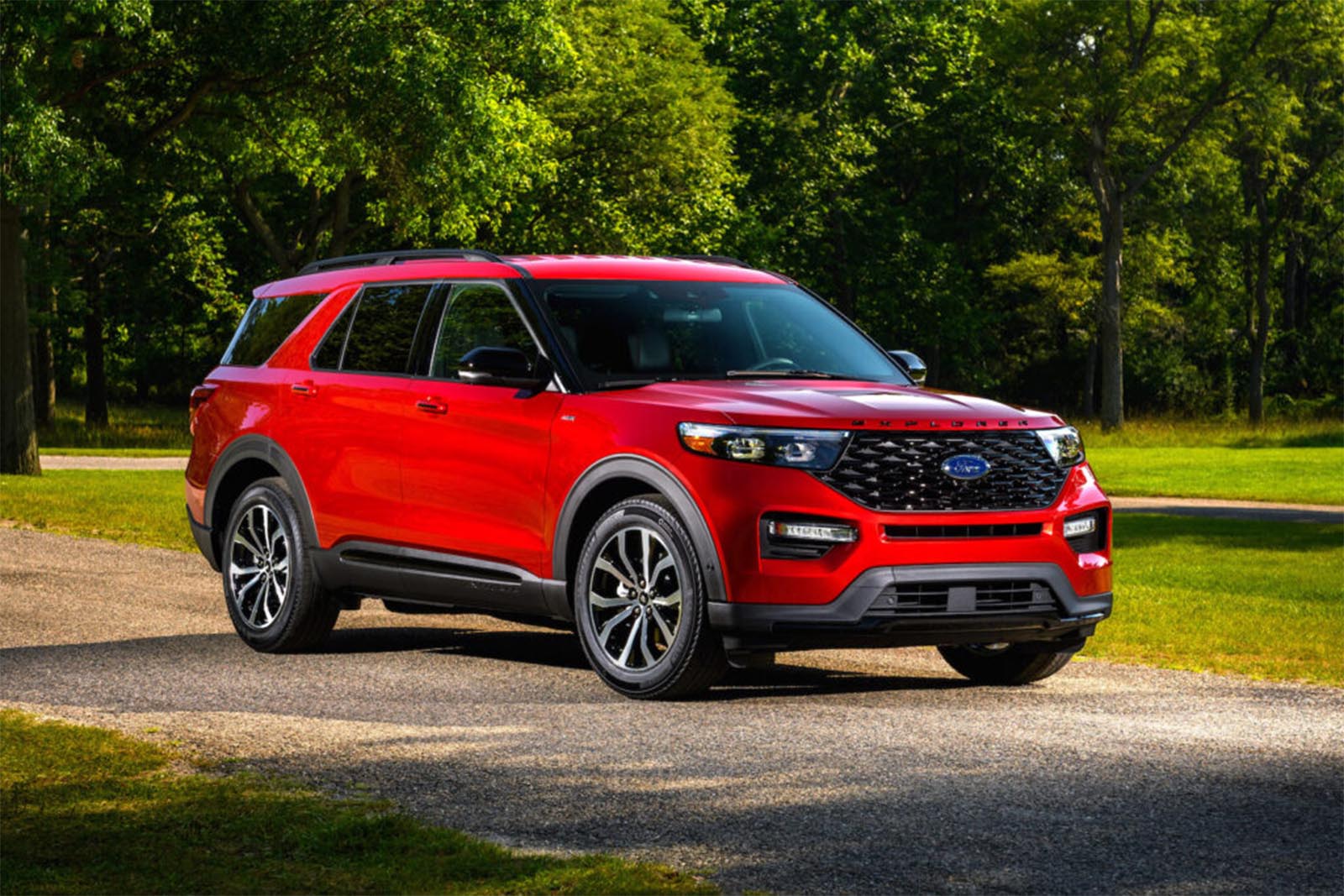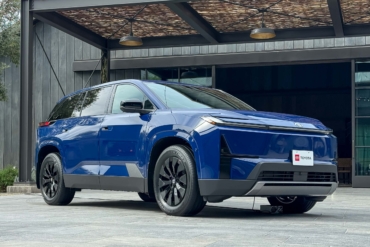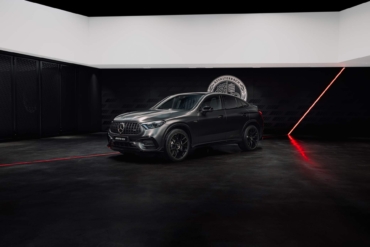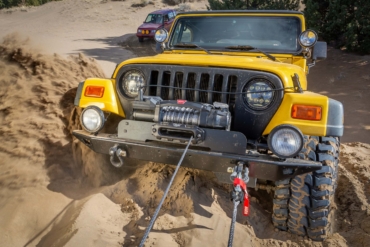An ongoing shortage of semiconductors has forced automakers to repeatedly disrupt production over the past year.
Now, some are deleting chip-controlled features like touchscreens, heated seats, and auto stop/start to help assembly lines keep rolling.
In the coming weeks, some buyers will find the Ford Explorer SUVs they ordered are missing a feature when they take delivery. The automaker is temporarily deleting rear-seat climate controls because of a shortage of the semiconductor chips needed to control the system.
The automaker “will be able to get Explorers out to customers faster,” explained spokesman Said Deep, because the alternative would be to indefinitely delay production of models equipped with the rear-seat system until the necessary chips would become available again.

It’s not the first time Ford has deleted a feature in order to keep assembly lines rolling. Last year, it dropped the auto stop/start system — which temporarily shuts off the engine instead of idling to save gas — from some F-150 models.
And a variety of other automakers have taken similar steps over the past year, including BMW, GM, Nissan, and Porsche.
A Growing Problem
The problem is an unintended consequence of the COVID-19 pandemic. When the virus forced widespread lockdowns in early 2020, car sales plunged, and automakers responded by slashing orders for parts and components — including semiconductors.
Chip manufacturers discovered a ready market, however, in the consumer electronics industry. Companies like Apple, Dell, and Sony were ramping up production to meet demand from the millions of folks suddenly working from home.
By late 2020, vehicle demand rebounded sharply, however, and manufacturers rushed to rebuild dwindling inventories. But they discovered there weren’t enough chips to go around. As a result, they’ve had to repeatedly idle plants and scramble for supplies.
Worldwide, automakers lost about 10 million vehicles’ worth of production last year, according to consulting firm AlixPartners, resulting in a loss of over $200 billion in revenue.
A Devil’s Bargain
With dealers and customers clambering for vehicles, manufacturers have struggled to find innovative solutions. The typical vehicle uses dozens — in some cases hundreds — of chips, but some automakers have found ways to swap out semiconductors in short supply for ones that might be more plentiful.

Others are simply deleting features, whether temporarily or indefinitely. Tesla removed rear USB-C charging ports and wireless charging pad functionality from its list of features for Models 3 and Y.
GM eliminated the HD Radio feature from its Chevrolet Silverado and GMC Sierra pickups midway through the 2021 model year and has yet to bring it back. On some V8 pickups, it eliminated the stop/start function as well as cylinder deactivation, resulting in a 1 mpg reduction in fuel economy.
BMW removed the touchscreen functionality on a number of product lines, including the 3-Series sedan, 4-Series coupe and convertible, the Gran Coupe, Z4, and X5, X6, and X7 SUVs. The company also lost the Parking Assist feature. But motorists retained the ability to operate other infotainment functions, whether by voice or using the iDrive controller.

Retrofit
In a number of cases, manufacturers have deleted features only briefly until they could stock up on the necessary chips again.
GM briefly eliminated heated seats from some models late in 2021, while Porsche had to temporarily replace the power-adjustable steering wheel on some products with a manually operated version.
In both those cases, however, GM and Ford were later able to retrofit the affected vehicles once they received new chips. Ford plans to do the same thing with the rear-seat climate controls on the Explorer SUV.
The second-largest Detroit automaker also plans to compensate owners for the hassle with a discount on the sticker price. It gave a $50 discount to F-150 buyers who lost stop/start functionality. GM, meanwhile, has compensated buyers up to $500 for lost features.

Customers May Have Options
In some cases, customers have gotten the option of refusing to accept a vehicle where features have been deleted. That will be the case with the Ford Explorer if someone has ordered the vehicle in advance. But the alternative could be waiting weeks, even months, until chip supplies are restored.
And when that will happen is anyone’s guess. In recent weeks, an assortment of manufacturers, including Ford, GM, Porsche, and Toyota have had to trim production again due to the crisis. And AlixPartners warns that supplies may not get back to normal until late this year, perhaps not even until 2023.
So if you plan to buy a new vehicle in the months ahead, don’t be surprised if you either lose some features or have to wait to take delivery.









